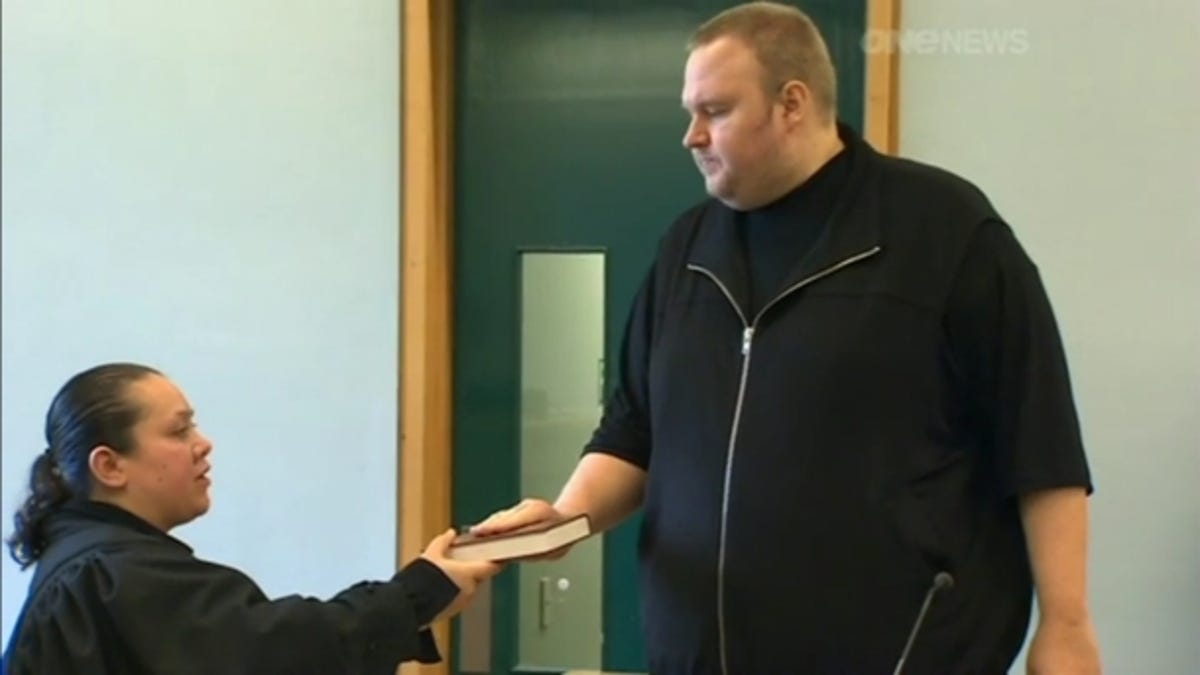Kim DotCom case sees tears, claims of betrayal
A hearing on the attempt by the U.S. to bring MegaUpload founder Kim DotCom to this country on piracy charges offers plenty of twists.

Kim DotCom isn't too big to cry.
In court yesterday, the MegaUpload founder choked up when he recalled how New Zealand police in January raided the Auckland mansion where he lived and when, as his lawyer said, he was "ripped him away from his family." The U.S. Attorney's office accuses MegaUpload of being a front for a massive piracy operation and lawyers there are trying to extradite him to this country to face criminal copyright, money laundering and wire fraud charges.
MegaUpload was one of the Web's most popular cyberlocker services before U.S. authorities shut it down. The U.S. government is trying to send a message that turning a blind eye to piracy can land site operators in jail. Critics say U.S officials are overreaching and at most the case is a civil dispute.
Back in court, as DotCom was tearing up, his lawyers seethed. DotCom, who has denied being a pirate, was in a New Zealand courtroom Wednesday seeking a judicial review of the search warrants served on him and MegaUpload. His attorneys argued that New Zealand authorities illegally seized data that wasn't relevant to the case and DotCom wants some of his possessions returned, according to Ira Rothken, the U.S.-based lawyer leading DotCom's worldwide defense.
But that's only one part of the U.S. government effort that has angered the DotCom side. According to Rothken, when DotCom's lawyers asked authorities to give them a copy of the data taken from him, they learned that New Zealand officials had shipped the information to the FBI for analysis.
Paul Davison, DotCom's lead attorney in New Zealand, told the media that he was assured by authorities that none of the data seized would leave the country without warning. Without the data, DotCom can't properly defend himself, his attorneys argue, and they feel betrayed.
"The court will determine whether the United States and New Zealand had the authorization to remove data from New Zealand absent a court order," Rothken told CNET. "This is a serious international issue and we believe it requires proportional remedy... It seems as though the United States is trying to win on tactics rather than on merits."
Some of the data seized from DotCom's personal computers was also encrypted and authorities have asked him for the passwords. He has refused to hand them over.
"On certain conditions, Kim DotCom would consider supplying them," Rothken said. "But not when data was secreted away from New Zealand, away from a New Zealand court and judicial supervision. His password on some of the data is his only protection against unreasonable intrusion."

